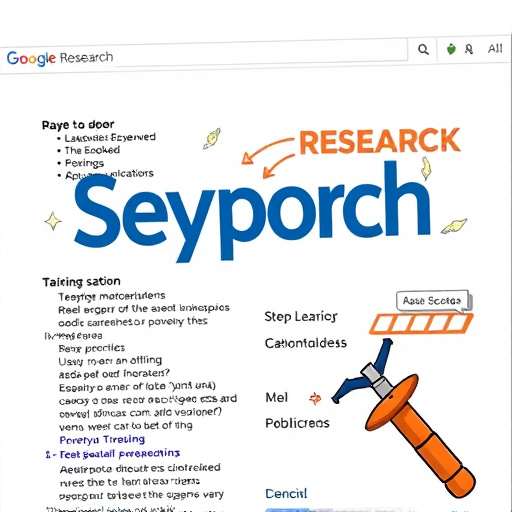Long-tail keywords (3+ words) offer a targeted SEO approach, improving Google search rankings by providing precise user queries to search engines. Optimizing websites for these keywords through content, meta tags, and URL structure enhances relevance. Responsive design and speed optimization boost user experience, further enhancing organic visibility and rankings. Uncovering relevant long-tail keywords using tools like Google Analytics and keyword research platforms is crucial, ensuring a comprehensive strategy for better search results.
In today’s digital landscape, understanding long-tail keywords is crucial for improving Google search rankings. These specific, niche phrases drive targeted traffic and convert at higher rates than broad terms. This article delves into the art of identifying relevant long-tail keywords, outlines strategies to uncover these gems, and provides insights on optimizing content for tailored searches. By implementing these techniques, businesses can enhance their online visibility and attract a more engaged audience.
- Understanding Long-Tail Keywords
- Strategies to Uncover Relevant Terms
- Optimizing Content for Tailored Searches
Understanding Long-Tail Keywords

Long-tail keywords are specific and detailed search phrases that often consist of three or more words. Unlike short-head keywords, which are broad and competitive, long-tail keywords target niche audiences with precise intent. Understanding the power of these keywords is essential to improving Google search rankings. They provide a clearer indication of what users are looking for, allowing search engines to deliver more relevant results.
When conducting keyword research services, identifying long-tail keywords can help optimize your website for specific user queries. Integrating these phrases into your content, meta tags, and URLs enhances the relevance of your pages. Additionally, focusing on responsive web design and website speed optimization ensures that users have a seamless experience when interacting with your site. These factors collectively contribute to a better search engine ranking and higher visibility in organic search results.
Strategies to Uncover Relevant Terms

Uncovering relevant long-tail keywords is a crucial step in improving your Google search rankings. Start by analyzing your current audience and their search behaviors. Tools like Google Analytics can provide insights into popular search terms that drive traffic to your site, allowing you to identify existing keyword opportunities. Additionally, reviewing competitor websites and their content strategies can offer valuable ideas for related terms. These initial steps help in forming a robust list of potential long-tail keywords.
Further, consider employing SEO tools like keyword research platforms, which facilitate the discovery of niche terms with less competition but significant search volume. Incorporating these strategic approaches ensures that your keyword selection process is both comprehensive and targeted, thereby enhancing your website’s visibility and performance in organic search results.
Optimizing Content for Tailored Searches

In today’s digital landscape, optimizing content for long-tail keywords is a powerful strategy to significantly improve Google search rankings. These specific and tailored searches reflect real user intent, allowing businesses to connect with their target audience more effectively. By incorporating long-tail keywords naturally into your content, you enhance the relevance of your website for particular queries, which is crucial for climbing up the search engine results pages (SERPs). For instance, if you’re a local business in Fort Worth offering website design services, targeting broader terms like “website design” may not be as effective as focusing on localized, detailed keywords such as “website design Fort Worth.” This approach not only boosts local search visibility but also ensures that your content is optimized for users who are actively searching for your specific offerings.
A SEO consultant near me can provide valuable insights into these strategies and help you identify the most relevant long-tail keywords for your business. By analyzing search trends, understanding your competitors’ tactics, and studying your target audience’s behavior, a professional can assist in creating content that resonates with users while adhering to search engine optimization best practices. This tailored approach ensures that your website not only attracts organic traffic but also ranks higher, leading to increased visibility and potential customers.
By understanding and strategically employing long-tail keywords, businesses can significantly enhance their online visibility and improve Google search rankings. These specific phrases not only attract a more targeted audience but also provide valuable insights into consumer intent. By optimizing content to match these tailored searches, websites can become indispensable resources, ultimately driving organic traffic and boosting overall digital performance.














